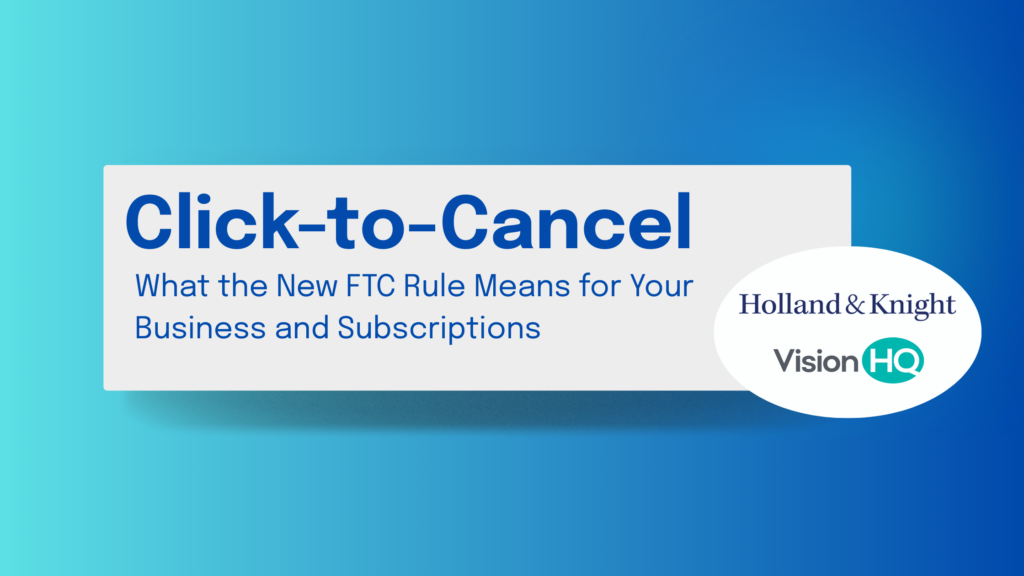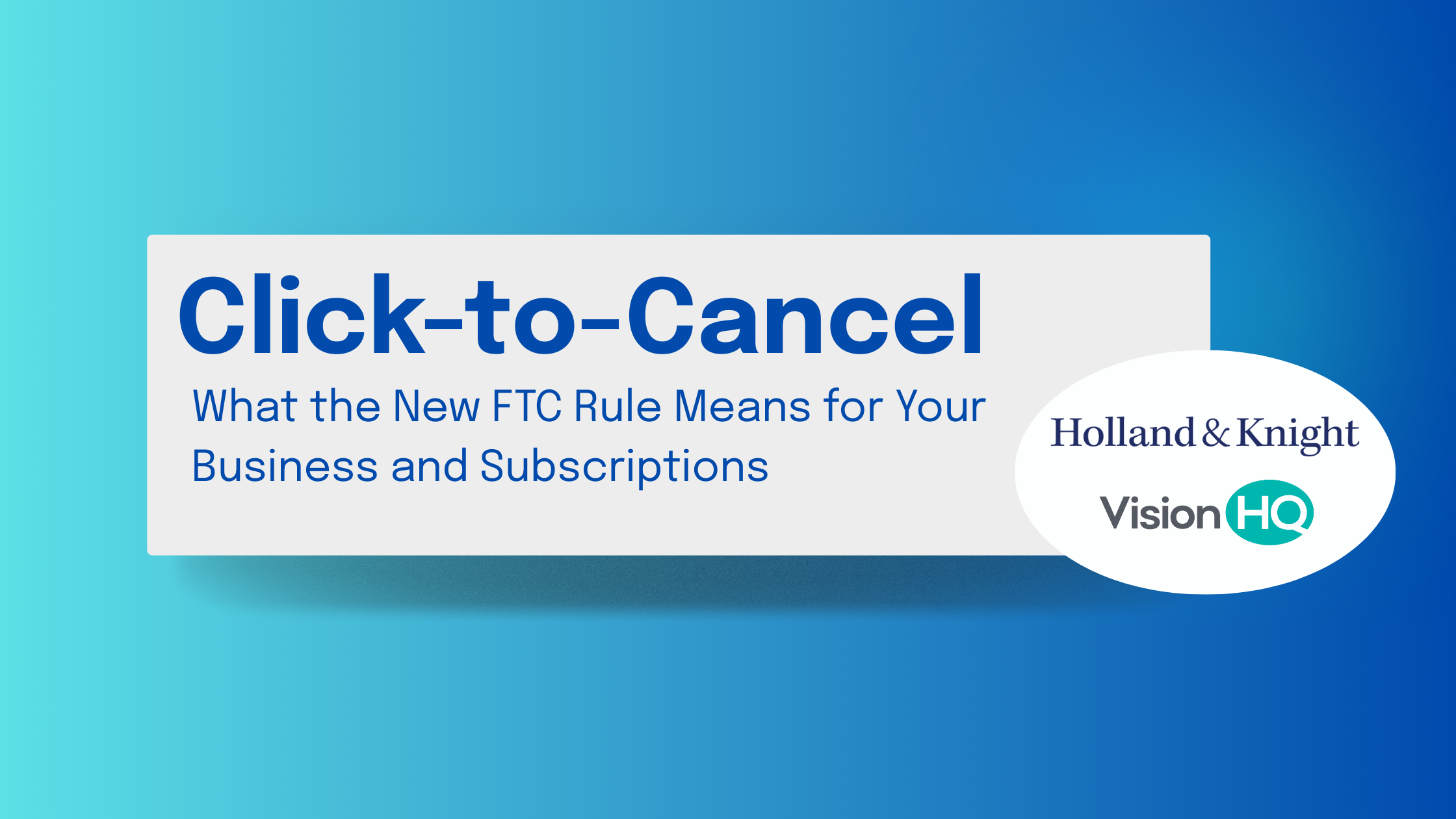
If your practice offers any kind of subscription or recurring billing—like a vision membership plan—this new regulation from the Federal Trade Commission (FTC) directly impacts you.
During our recent webinar, attorneys Brian Goodrich and Ben Genn of Holland & Knight broke down the essentials of the FTC’s newly announced “Click to Cancel” rule, set to be enforced beginning July 14, 2025 with VisionHQ.
We’re highlighting the most important takeaways from that conversation here, but we highly recommend watching the full webinar to get all the details and guidance.
Watch the full webinar replay:
What Is the Click to Cancel Rule?
The FTC’s new rule is designed to protect consumers from confusing, hard-to-cancel subscriptions and recurring charges. It applies to any business offering automatic renewals—including vision membership plans.
Key requirements include:
- Clear, upfront disclosures before collecting payment
- Express informed consent for recurring billing (not just general terms & conditions)
- Simple, “same medium” cancellation (if a patient signed up online, they must be able to cancel online)
- Retention of consent records for at least three years
The FTC can enforce violations directly in court, with potential penalties of up to $53,000 per violation.
Why Now?
This rule is a response to growing consumer complaints about surprise charges and convoluted cancellation processes. Even though it was drafted under the previous administration, it has bipartisan support and will be actively enforced.
The FTC has already taken action against companies like Uber for similar violations, signaling that enforcement is coming—and fast.
What Dental Practices Should Do
Even if your membership plan or patient payment system isn’t traditional e-commerce, this rule likely applies. Optometryl practices using in-house membership plans, financing options, or recurring billing for services must take a close look at:
- How they collect consent
- What their disclosures say (and where they appear)
- How easy it is for a patient to cancel
- Whether their systems store and document consent properly
California Has Even Stricter Rules
If you operate in California or serve patients there, you’ll also need to comply with that state’s newly amended Auto Renewal Law, effective July 1. These requirements go even further than the FTC rule—adding mandates like annual renewal notices and emailed summaries of key contract terms.
Stay Ahead of the Curve
The bottom line? Practices that get compliant now will avoid risk—and build more trust with patients. This rule is coming fast, and noncompliance can be costly.
Watch the full webinar replay to get expert guidance and practical next steps:

View comments
+ Leave a comment